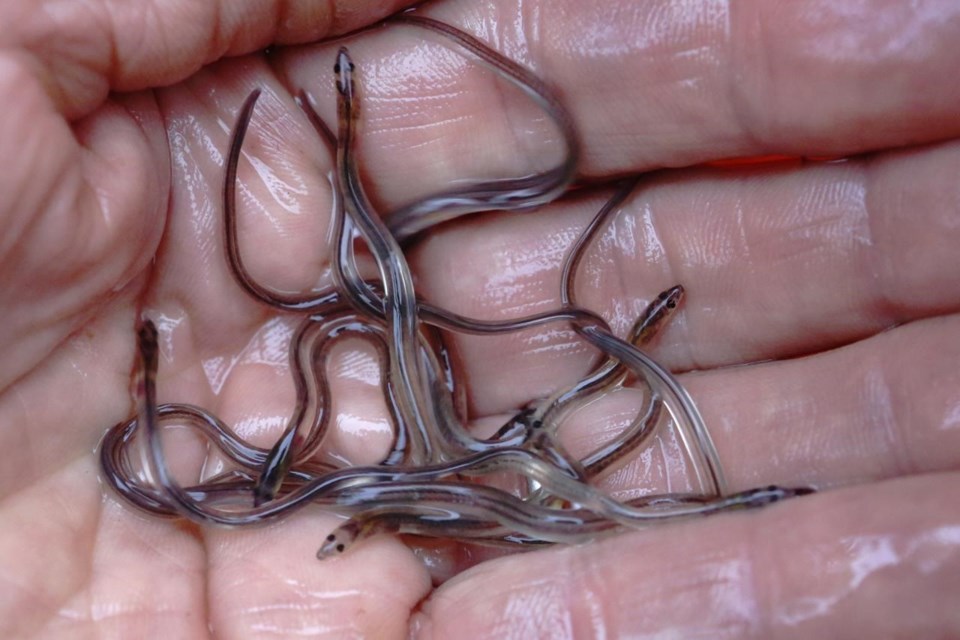HALIFAX — The Federal Court has affirmed Ottawa’s move in 2022 to transfer part of the lucrative elver fishery quota in the Maritimes to First Nations fishers. In a written decision dated Aug.

NationTalk: Alaska Highway News: HALIFAX — The Federal Court has affirmed Ottawa’s move in 2022 to transfer part of the lucrative elver fishery quota in the Maritimes to First Nations fishers.
In a written decision dated Aug. 29, Justice Elizabeth Walker said the federal fisheries minister was “fair and reasonable” given the broad discretion the minister has to manage Canadian fisheries.
Recommended reads for you:
“It is very much a decision based on policy and public interest considerations consistent with the statutory scheme of the Fisheries Act, albeit with an immediate private impact on licence holders,” Walker wrote. “Neither the minister nor the Department of Fisheries and Oceans took into account extraneous considerations or ignored issues and arguments raised by licence holders against the reduction of individual quota without compensation.”
The judge’s ruling rejected an application by three commercial licence holders to seek a judicial review of the minister’s quota decision.
The court challenge was mounted by Nova Scotia licence holders Shelburne Elver Ltd. and Wine Harbour Fisheries Ltd., and New Brunswick’s South Shore Trading Co. Ltd., after the federal government reallocated a part of the quota to some First Nations.
Former federal fisheries minister Joyce Murray cut the commercial elver quota by about 14 per cent to give Indigenous fishers access to the fishery in recognition of a treaty right. The move came after negotiations to buy out the existing licence holders were discontinued.
All three companies had annual quotas of 1,200 kilograms prior to 2022. The total aggregate catch for the elver fishery has remained at 9,960 kilograms since 2005.
The applicants in the case maintain that while they don’t object to First Nations participation in the fishery, the decision to cut their quota was forced on them without compensation. They also say the minister’s decision was “hurried and rushed.”
In an interview, Brian Giroux of Shelburne Elver said the court decision illustrates the “dictatorial” powers possessed by cabinet ministers. “The cards are all stacked against us to start with,” said Giroux. “The minister has absolute discretion and has very little duty to consult. All we were relying on was trying to find a narrow window of fairness within an unfair process.”
Giroux said the two Nova Scotia licence holders are considering an appeal while a separate challenge of an identical quota transfer for the 2023 elver season is still pressing ahead.
Lawyer Michel Samson, who represents Wine Harbour Fisheries, expressed disappointment with the court’s ruling, saying an opportunity was missed to uphold the willing buyer, willing seller model, in which someone exits the commercial fishery through a buyout of a licence so someone else can enter.
Samson said he believes the court ruling leaves open the possibility of “arbitrary” cuts to quotas in other sectors of the industry like the lobster fishery. “In essence, DFO has essentially been given the green light to do this for other fisheries,” he said. “The solution to all this shouldn’t be through the courts. It only takes the new minister to come and say they will not use this hammer again.”
However, Walker’s ruling stated that “the decision in this case does not impose a rule of general application. In substance the decision is a licensing decision applicable solely to the 2022 elver fishing season.”
The contentious fishery was shut down by federal officials this year on rivers in Nova Scotia and New Brunswick over safety and conservation concerns. The shutdown followed ongoing complaints from commercial and First Nations fishers about growing violence and intimidation due to unauthorized fishing.
The increased illegal activity coincided with a growing demand for the young eels, which are sold live to Asian markets such as China and Japan where they are grown for food. Prices had reached as high as $5,000 per kilogram in 2022.
In 2012 the American eel was designated as threatened by the Committee on the Status of Endangered Wildlife in Canada.
This report by The Canadian Press was first published Sept. 1, 2023.
Keith Doucette, The Canadian Press